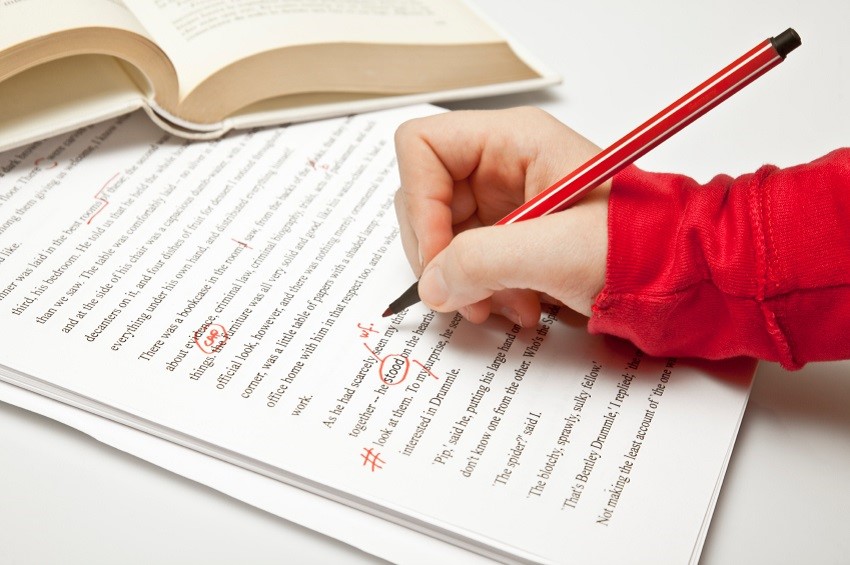
Practical Tips to Help You Cultivate a Reading Habit
Do you want to become a reader? It is not about intelligence but about harnessing your energy in the best way. You may not notice it anymore, but the world around you is filled with an enormous number of words. A 2009 study states that a person is exposed to up to 100,000 words every day, between advertising, emails, social networks, and text messages, in addition to the time we spend reading books or articles.
Tips for cultivating a reading habit
Words seek our attention: that is the reason for their existence. But you may feel frustrated or tired at times: you want to read but the book doesn’t interest you, or you lose your attention after a short time, or you fall asleep. We will analyze some techniques that can improve your speed with which you read and your pleasure, improving your reading comprehension and your long-term memory along the way.
1. On-screen or paper
The surfaces and platforms on which we read can work for us or against us. Some love the experience of physical books and making notes on the pages; others prefer to use an e-reader, such as the Kindle or Kobo, or turn an iPad or mobile phone into a book archive. The Lithium application is excellent for managing different formats of electronic books, both on mobile and desktop.
But in reality, it is not necessary to choose only one reading platform but to establish priorities and see which is the most suitable at all times. For example, a printed book does not need a battery or updates, you can always carry it with you and it will never distract you by showing you notifications while you immerse yourself in words.
2. Be clear about what you are looking for when reading
Reading out of obligation is not the same as reading for pleasure. If you have to read a lot of text in a very short time at school or work, you can try the diagonal reading method. This involves imagining a diagonal line from the upper left corner of the text to the lower right corner, and instead of reading word by word, try to search for keywords or central ideas.
This is the way many recruiters read (which is why it is advised that you do not send resumes longer than two pages). Also, reading diagonally allows us to discard a lot of information that we are not interested in and concentrate on learning or finding the most relevant concepts.
3. Regain the old habit of reading aloud
On the other hand, if you are reading a literary text, such as a poem or a story. It is not only important that you read it word by word, but perhaps your reading comprehension will be greatly benefited by reading it aloud. In this type of text, the important thing is not usually the information, but the authors’ style and the words they choose to tell their story.
Reading aloud to someone else was one of how knowledge was historically transmitted. Let’s remember that printed books have little more than 500 years of existence (what some authors call the “Gutenberg galaxy”). At first, they were too expensive, not to mention that not all people could read.
Surely there are many other reading goals. For example, some read to help them sleep. Dimming the lights a bit, having a cup of hot tea and diving into a novel’s plot is an excellent prelude to sleep. There is nothing wrong with using the books for what you need.
4. Spend time (you don’t even need much)
The average American spends 2 hours a day on social media. With that time, you could read about 200 books a year. The most difficult thing is to break the automatism that takes over us while we navigate on Instagram or Twitter.
One way to hack yourself to read more is to make your chosen platforms (see point 1) to read available whenever you need it. You can leave books in your bathroom, on your nightstand, in your backpack or purse, and even in your car if you use them. Use travel timeouts or waiting rooms to read even a few minutes.
You can even use an old cell phone with an Internet connection as a reading device. Pocket is an app that allows you to synchronize a shelf of articles on several devices, store the text offline to read it in a distraction-free interface, and access them when you need them.
5. Start small
The love of books and reading does not begin when we learn to read. Babies under 1 year of age can receive early stimulation through books and objects designed to stimulate attention, psychomotor coordination, and memory. Reading is more than processing words: it is an act of generosity, imagination, creativity, and fun, so it can be argued that, to some extent, babies read even if they do not know the alphabet.
Today children spend between 4 and 8 hours online. One way to balance leisure time with reading is, again, reading aloud. Reading to children (even if they are not your children) is not only an excellent plan to have fun and learn but sharing with them in this way increases retention and reading comprehension.
6. Reading modifies your brain (literally)
Words have physical effects on our neurons. A study in the journal NeuroImage showed that words associated with odors (such as “coffee” or “perfume”) activate the same areas of the primary cortex responsible for processing olfactory stimuli.
In other words, our brains “translate” words into electrical impulses that make the words feel like actions. As if that were not enough, reading increases the quantity and quality of the brain’s white matter, the tissue that allows new neural connections to be established and faster learning.
Set small goals and increase little by little
Assuming a non-professional reader can read about 350 words per minute, it would take him only 20 minutes a day to read a book per week. However, as we saw in point number 2, not all books are read simultaneously or for the same reasons.
Even so, spending just 20 minutes of your day reading can help this habit. Some readers dedicate themselves to a single book until they finish it. On the other hand, read only a few fragments of several books each day, according to their interests.
The important thing is that you know that reading has very concrete benefits for you and that reading out of obligation is a recipe for failure. Understanding that sometimes we read for work and sometimes for pleasure is a fundamental difference that each of us must be clear about.





